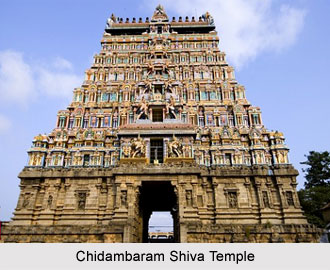 Gandaraditya Chola was the son of Parantaka I and became a king of the Chola Dynasty during 955 Century CE. He was also a renowned Tamil poet who composed devotional hymns devoted to Lord Shiva. He concentrated mainly on religious work and acted as a reluctant ruler. Gandaraditya Chola was not too keen on expanding and building his empire. Thus, while he was an ardent devotee of lord Shiva, and his role playing as a worshipper had been intense and great; his donning the hat of a ruler had been a complete failure. Throne was not his forte; his journey had been to attune himself to the glory of Shiva in which he excelled. The Rashtrakutas continued to occupy the Tondaimandalam, but Gandaraditya made no effort to retrieve it. The proper reason for this cannot be ascertained and this may be due to the fact that the king was assimilating his place towards the south of the Paalar River and was reducing his losses to maintain control on Eelam ot keep it under the control of the Chola Dynasty. It may also be that Gandaraditya was not interested in war. The Chola king dedicated most of his time to religious discourse. Gandaraditya Chola has composed a Tamil hymn on Lord Shiva of the Chidambaram Temple. The poet king died in 956 Century CE.
Gandaraditya Chola was the son of Parantaka I and became a king of the Chola Dynasty during 955 Century CE. He was also a renowned Tamil poet who composed devotional hymns devoted to Lord Shiva. He concentrated mainly on religious work and acted as a reluctant ruler. Gandaraditya Chola was not too keen on expanding and building his empire. Thus, while he was an ardent devotee of lord Shiva, and his role playing as a worshipper had been intense and great; his donning the hat of a ruler had been a complete failure. Throne was not his forte; his journey had been to attune himself to the glory of Shiva in which he excelled. The Rashtrakutas continued to occupy the Tondaimandalam, but Gandaraditya made no effort to retrieve it. The proper reason for this cannot be ascertained and this may be due to the fact that the king was assimilating his place towards the south of the Paalar River and was reducing his losses to maintain control on Eelam ot keep it under the control of the Chola Dynasty. It may also be that Gandaraditya was not interested in war. The Chola king dedicated most of his time to religious discourse. Gandaraditya Chola has composed a Tamil hymn on Lord Shiva of the Chidambaram Temple. The poet king died in 956 Century CE.
Gandaraditya Chola as a Ruler
During his reign, the martial Chola power was toned down to much extent but trade and commerce, particularly maritime trade, flourished under the rule of the Gandaraditya Chola. Gandaraditya Chola was married to Queen Sembiyan Madeviyar, also known as Madevadigalar, and the royal couple had a son named Madhurantaka Uttama Chola. Only a few inscriptions directly related to the Poet king is available as older inscriptions were deliberately obliterated by his successor Uttama Chola, who decided to transform South Indian temples, under the Kalpani scheme, from brick and mortar to granite. Historical evidences of the decision of Uttama Chola are found at the inscriptions at Kanchipuram.
Gandaraditya Chola as a Poet
According to the researchers of Tamil literature and scholars of Shaiva religious literary works, Gandaraditya was a poet who composed devotional hymns on Lord Shiva. He composed the Thiruvisaippa, a devotional poetic work on Shiva at the Temple of Chidambaram. Thiruvisaippa comprises of a distinctive declaration that Parantaka I occupied the Pandya country and Eelam (now Sri Lanka). Moreover, he covered the temple of Nataraja with gold. Gandaraditya Chola, in his poetic work, identifies himself as the king of Uraiyur (Kozhiyur) and calls himself the lord of the people of Thanjavur. The devotional verses composed by him, praises the glory of Lord Shiva and mentions of the many temples of Shiva in the region, including the Chidambaram temple.
The period of the composition of Thiruvisaippa by Gandaraditya Chola is not properly identified. Moreover, it is also disputable if his father Parantaka I, covered the shrine at Chidambaram or if Gandaraditya Chola undertook the task and completed it in lieu of his father.



















